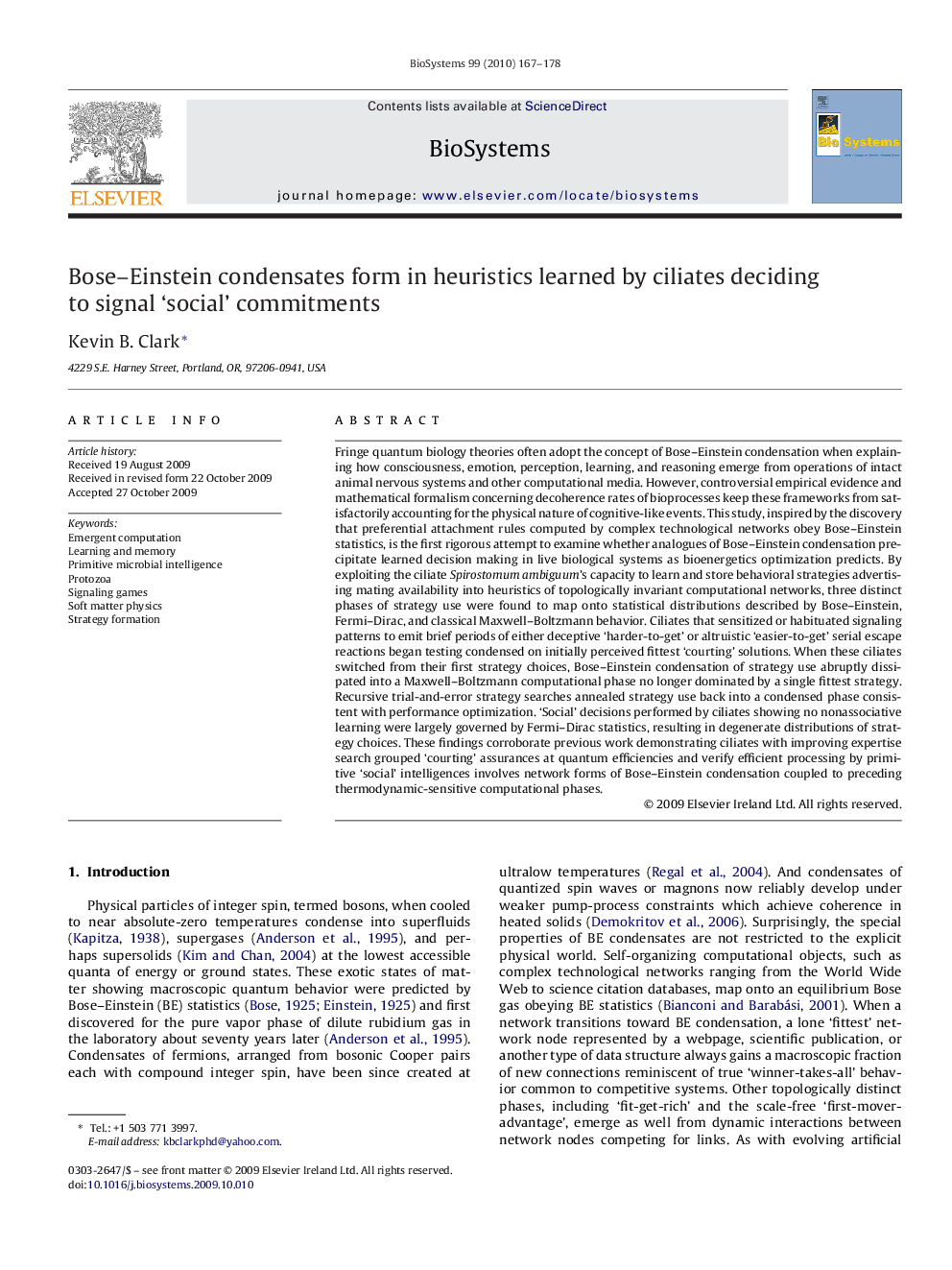| Article ID | Journal | Published Year | Pages | File Type |
|---|---|---|---|---|
| 2076381 | Biosystems | 2010 | 12 Pages |
Fringe quantum biology theories often adopt the concept of Bose–Einstein condensation when explaining how consciousness, emotion, perception, learning, and reasoning emerge from operations of intact animal nervous systems and other computational media. However, controversial empirical evidence and mathematical formalism concerning decoherence rates of bioprocesses keep these frameworks from satisfactorily accounting for the physical nature of cognitive-like events. This study, inspired by the discovery that preferential attachment rules computed by complex technological networks obey Bose–Einstein statistics, is the first rigorous attempt to examine whether analogues of Bose–Einstein condensation precipitate learned decision making in live biological systems as bioenergetics optimization predicts. By exploiting the ciliate Spirostomum ambiguum's capacity to learn and store behavioral strategies advertising mating availability into heuristics of topologically invariant computational networks, three distinct phases of strategy use were found to map onto statistical distributions described by Bose–Einstein, Fermi–Dirac, and classical Maxwell–Boltzmann behavior. Ciliates that sensitized or habituated signaling patterns to emit brief periods of either deceptive ‘harder-to-get’ or altruistic ‘easier-to-get’ serial escape reactions began testing condensed on initially perceived fittest ‘courting’ solutions. When these ciliates switched from their first strategy choices, Bose–Einstein condensation of strategy use abruptly dissipated into a Maxwell–Boltzmann computational phase no longer dominated by a single fittest strategy. Recursive trial-and-error strategy searches annealed strategy use back into a condensed phase consistent with performance optimization. ‘Social’ decisions performed by ciliates showing no nonassociative learning were largely governed by Fermi–Dirac statistics, resulting in degenerate distributions of strategy choices. These findings corroborate previous work demonstrating ciliates with improving expertise search grouped ‘courting’ assurances at quantum efficiencies and verify efficient processing by primitive ‘social’ intelligences involves network forms of Bose–Einstein condensation coupled to preceding thermodynamic-sensitive computational phases.
